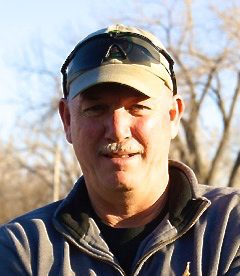

I’m sure many of us watched Ukrainian President Volodymyr Zelenskyy live via video on American television Wednesday as he addressed the U.S. Congress about the need for more aid to stop the Russian aggression.
It came one day after he spoke via video to Canadian Parliament requesting more aid.
Whether you know it or not, there are much deeper ties than political or diplomatic ones between the United States and Ukraine and Canada and Ukraine. As of the 2020 Census, there were 1.08 million people of Ukrainian descent living in the United States. Canada’s 2016 Census put the figure in that country at 3.4 million.
Closer to home, there are two North Dakota communities that make the top 10 list in percentage of population in the United States with people of Ukrainian descent. They are Belfield and Wilton.
It’s difficult to find an exact number of those with Ukrainian heritage in North Dakota. It’s less than 8,000, but it could be much higher than that given that many Germans from Russia came from Ukraine when they entered the United States in the 1800s.
There are 180,000 people in Manitoba who claim Ukrainian descent with 100,000 of them living in the city of Winnipeg which represents one-seventh of the city’s population. Saskatchewan has 144,000 people of Ukrainian descent with approximately 25,000 living in Regina.
Financially, these people are helping those in their native land. Channel 7 in Dickinson aired a segment that St. Demetrius Catholic Church in Dickinson coordinated an auction that raised $25,000 for Ukrainian relief. That money was given to the Knights of Columbus for the Ukrainian cause.
The government of Saskatchewan has donated $100,000 to the Ukrainian humanitarian effort and get this, the Metis Federation of Manitoba, has donated $100,000 for the same cause. The Metis have few, if any ties to Ukraine. If you remember your early North Dakota history, Metis were the offspring of French and Chippewa. Talk about a gesture of goodwill!
I couldn’t find any instances where the state of North Dakota has put forth any aid to Ukraine, although numerous small businesses have made donations and have taken up collections.
This is the second time in recent years that Ukraine has been affected by Russian mistakes. I think it’s clear to everyone that Putin’s invasion was a major mistake. Unfortunately, the Ukrainian infrastructure is being destroyed and hundreds of civilians killed, but Putin’s army is taking heavy casualties including the deaths of three major generals. The U.N. estimates that 6,000 Russian soldiers have been killed in the fighting.
We all know what happened on April 27, 1986. That’s when Chernobyl exploded and sent deadly amounts of radiation into the air. Ukraine was part of the Soviet Union then and four days after the explosion, there was a May Day celebration in Kiev in which hundreds of thousands of Ukrainians were exposed to radiation a mere 62 miles from Chernobyl.
If my memory is right, the Soviet government took nearly two weeks to announce the explosion and radiation field. All those people in Kiev and the rest of northern Ukraine were already exposed when they could have been warned immediately. But it also affected Belarus, Poland, Sweden, Finland and parts of western Russia.
As a result, there were spikes in thyroid cancers, especially in children. To this day, the Russian government insists that four people were killed in the explosion. That’s true, but consider the thousands, if not millions who were affected otherwise with cancer, multiple sclerosis and other diseases brought on by the radiation.
For me, this war is personal, because I have a close friend right in the middle of it. In 2006 and 2007 when I was stationed at U.S. Central Command, I shared an office with a young Ukrainian captain Yurii Kaliaeav. I’ve often told people that Yurii was the first person to get to work and the last one to leave. He was perhaps the hardest working soldier I had ever met so if he’s like everyone else, it’s no wonder the Ukrainian psyche is to never give up.
Yurii and I worked on strategy, we met with Department of Defense officials, we collaborated on CENTCOM press releases, we went to a Christmas party together and we shared a shot of Ukrainian vodka when Yurii was released to go home. On the second day of the war, Yurii sent me a Facebook post telling me he was alright and thanked all of us in the United States for the support.
None of us know what’s going to happen, but I’m sure you’re like myself, we all want a free and democratic Ukraine just like the rest of Europe wants it. With that I say, Slavi Ukraine, or Glory to Ukraine. And, godspeed Yurii Kaliaev.